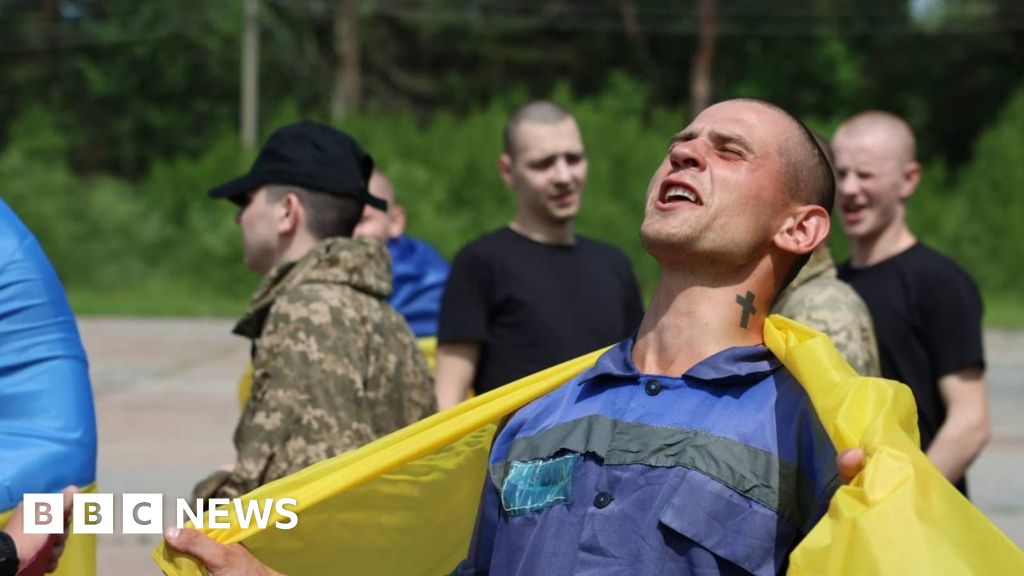ARTICLE AD BOX
Image source, Reuters
Image caption,Christmas has been an anxious time for travellers, some of whom now face cancelled flights (file picture)
Millions of people are facing travel disruption and increased Covid restrictions over Christmas, as the surging Omicron variant sees safety curbs tightened and flights cancelled.
Italy, Spain and Greece have made face masks compulsory outdoors again.
Catalonia, in northern Spain, has imposed an overnight curfew, and the Netherlands is in a strict lockdown.
Record infections were tallied in the UK, France and Italy on Thursday.
Meanwhile in the US, daily Omicron cases have risen beyond the peak of the recent Delta wave, and hospitals are filling up across the country.
"When we have millions and millions and millions of people, all sick, all together at one time, it doesn't take a large percentage of those people to topple over the hospitals," Dr Hallie Prescott, associate professor of internal medicine at the University of Michigan, told the New York Times.
America's top infectious disease expert, Dr Anthony Fauci, warned earlier this week that Christmas travel would increase the spread of the variant even among the fully vaccinated.
On Christmas Eve (Friday), US airlines said they were already suffering from staffing shortages due to flight crews testing positive or being forced to self-isolate.
United Airlines pulled about 150 flights scheduled for 24 December, according to the FlightAware website, citing the "nationwide spike in Omicron cases".
Delta Airlines cancelled 90 flights, and Alaska Airlines scrapped a further 17 after some employees "may have been exposed to the virus", AFP news agency reports.
In Australia, too, thousands of festive journeys were affected on Friday with more than 100 domestic flights from Sydney and Melbourne to other cities cancelled.
A spokesperson for Jetstar, which accounted for many of the cancellations, said the airline had rebooked "the vast majority" of affected passengers "within a few hours of their original departure time so they can get to their destination in time for Christmas".
Despite the upheaval, many Australians may be celebrating the fact they can travel between states over the holidays for the first time in two years.
Image source, Reuters
Image caption,Recent easing of Australia's travel rules has allowed for some happy reunions
It comes after Australia said it would narrow the waiting time between second injections and booster shots to four months from 4 January, for over-18s. At the end of the month the gap will shrink further to three months.
South Korea, Thailand and the UK all cut their time between shots to three months in December.
In the UK, where strike action is expected to disrupt train travel on Christmas Eve and New Year's Eve, Prime Minister Boris Johnson has used his Christmas message to urge people to get a booster jab in line with the festive "spirit of neighbourliness".
"Though the time for buying presents is theoretically running out," he said, "there is still a wonderful thing you can give your family and the whole country, and that is to get that jab, whether it is your first or second, or your booster."
Mr Johnson has ruled out bringing in new restrictions for England before Christmas Day, but Scotland, Wales and Northern Ireland have all announced curbs on social mixing.
Dr Tedros Adhanom Ghebreyesus: "An event cancelled is better than a life cancelled"
Many European countries are preparing to impose restrictions just after the festive period, including Germany which will restrict private gatherings to 10 people and close nightclubs from 28 December. Football matches will also be played behind closed doors.
Portugal has ordered bars and nightclubs to shut from 26 December, and made working from home obligatory from that date until 9 January.
More than 5.3 million people are reported to have died with coronavirus worldwide, according to Johns Hopkins figures. There have been more than 278 million confirmed cases.
Bethlehem, where Christians believe Jesus was born, will again host midnight Mass as a scaled-back affair, without the thousands of pilgrims who gathered there before the pandemic.
Pope Francis is still expected to deliver his Christmas Eve midnight Mass from St Peter's Basilica, however - as well as the traditional papal blessing on Christmas Day.

 3 years ago
40
3 years ago
40








 English (US) ·
English (US) ·